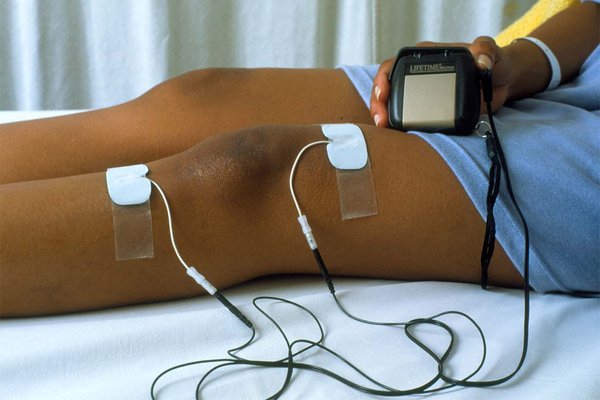
TENS can help relieve certain types of short-term and long-term pain such as:
It’s thought to work by encouraging your body to release natural painkillers called endorphins and by stopping pain messages from your nerves reaching your brain.
TENS does not work for everyone.
If you're not sure what’s causing your pain, see a healthcare professional before using a TENS machine.
Do not use TENS if:
If you want to try TENS for pain relief, it's a good idea to check with a GP or other healthcare professional first, to make sure TENS is safe for you.
You can buy a TENS machine online, or in pharmacies and shops selling electrical items. You may also be able to hire a TENS machine online or from a local pharmacy.
Check for a European CE mark or UKCA mark, as this means it meets the right standards.

A TENS machine is a small, portable device with a battery. It has wires with sticky pads that you put on your skin.
A healthcare professional, such as a GP, physiotherapist or midwife can advise you if you're not sure where to put the sticky pads. They can also tell you about alternatives if your skin is sensitive to the sticky pads.
If your skin becomes itchy, irritated or red (redness may be harder to see on brown or black skin), turn off the machine and remove the pads.
There are some things you should not use TENS for. Read the leaflet that comes with your machine for the full list and for further information about how to use TENS.
Check with a healthcare professional if you’re not sure.
Do not use TENS on irritated, broken, infected or numb areas of skin
Do not use TENS on your neck, mouth or eyes
Do not use TENS on your chest and back at the same time
Do not use TENS while you sleep
Do not use TENS in the bath or shower
Do not use TENS when driving or using tools or machinery
